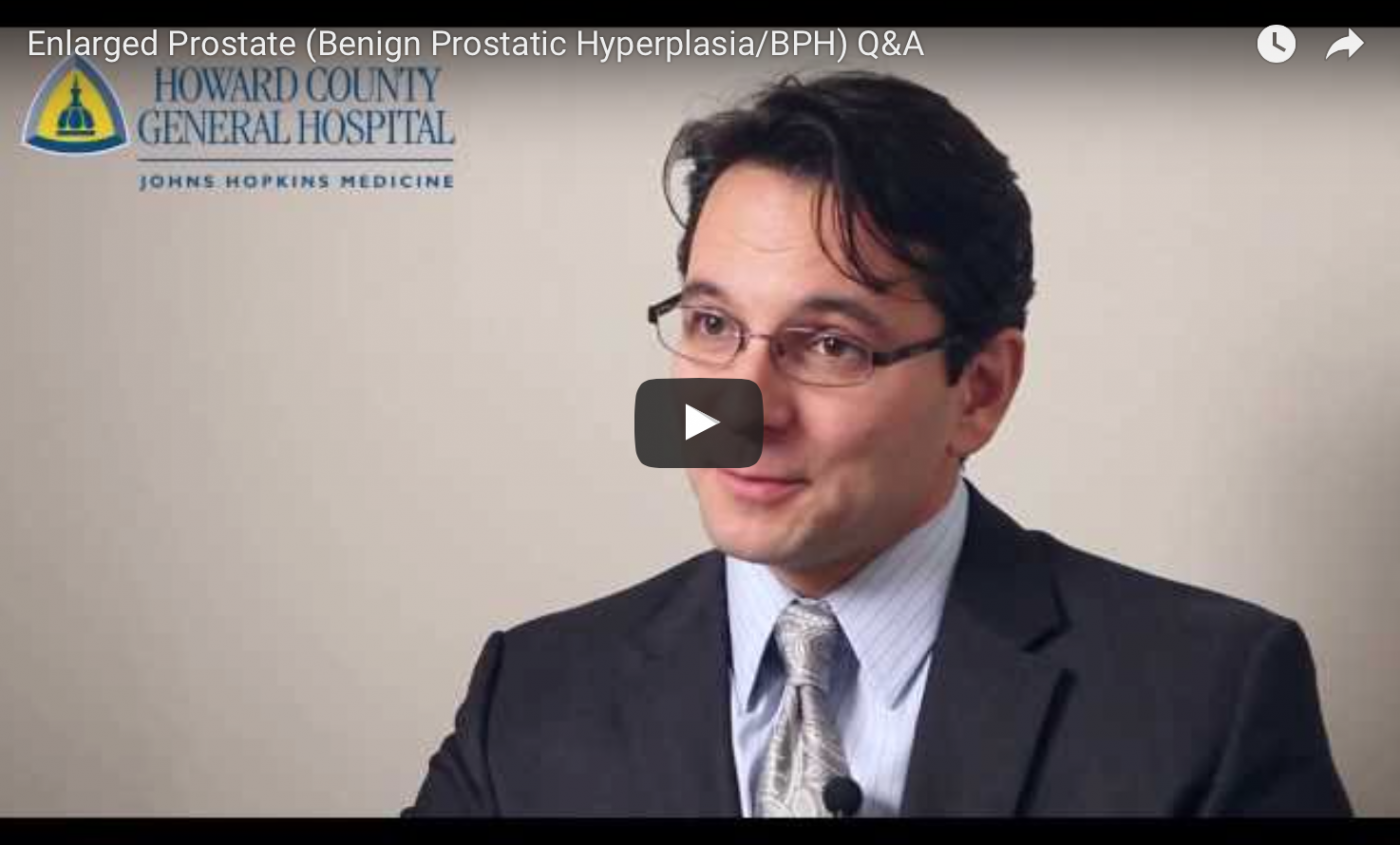Dr. Frank Nezu, MD, an urologist with the Central Maryland Urology Associates in Columbia, Maryland, who has privileges at Howard County General Hospital – a member of Johns Hopkins Medicine, responds to patients’ questions in this video. The purpose is to clarify misconceptions and increase understanding about the development, symptoms, and treatment of benign prostatic hyperplasia (BPH).
The physician starts by explaining that the prostate is the gland present in men which is responsible for most of the production of seminal fluid expelled during ejaculation. The prostate is located below the bladder and around the urethra. As men get older, the prostate starts to enlarge. Dr. Nezu classifies it as “part of the natural aging process in men,” and he emphasizes that it is a “non-cancerous enlargement of the prostate.”
“One-quarter of men at the age of 45 will start to experience symptoms of this enlargement. By the age of 75, half of all men will experience symptoms of this benign enlargement of the prostate,” he continues. “The symptoms of BPH can be divided into two categories. The first category is easy to understand and these are related to the obstruction the prostate causes to the flow of urine. These include straining to urinate, weak urinary stream or urinary hesitancy, or interrupted urinary stream.”
Dr. Nezu also explains that the second category of symptoms is more difficult to understand since they are caused by the thickening of the bladder wall and the response of the bladder to this problem. Symptoms of this category include frequency of urination, urgency to urinate, and a feeling of incomplete bladder emptying. The physician insists that it is important not to ignore symptoms, as over time, they may become more severe and even cause kidney failure.
Read the latest updates on BPH here: http://bit.ly/1IC9Rp1
BPH News is strictly a news and information website about the disease. It does not provide medical advice, diagnosis or treatment. This content is not intended to be a substitute for professional medical advice, diagnosis, or treatment. Always seek the advice of your physician or other qualified health provider with any questions you may have regarding a medical condition. Never disregard professional medical advice or delay in seeking it because of something you have read on this website.

